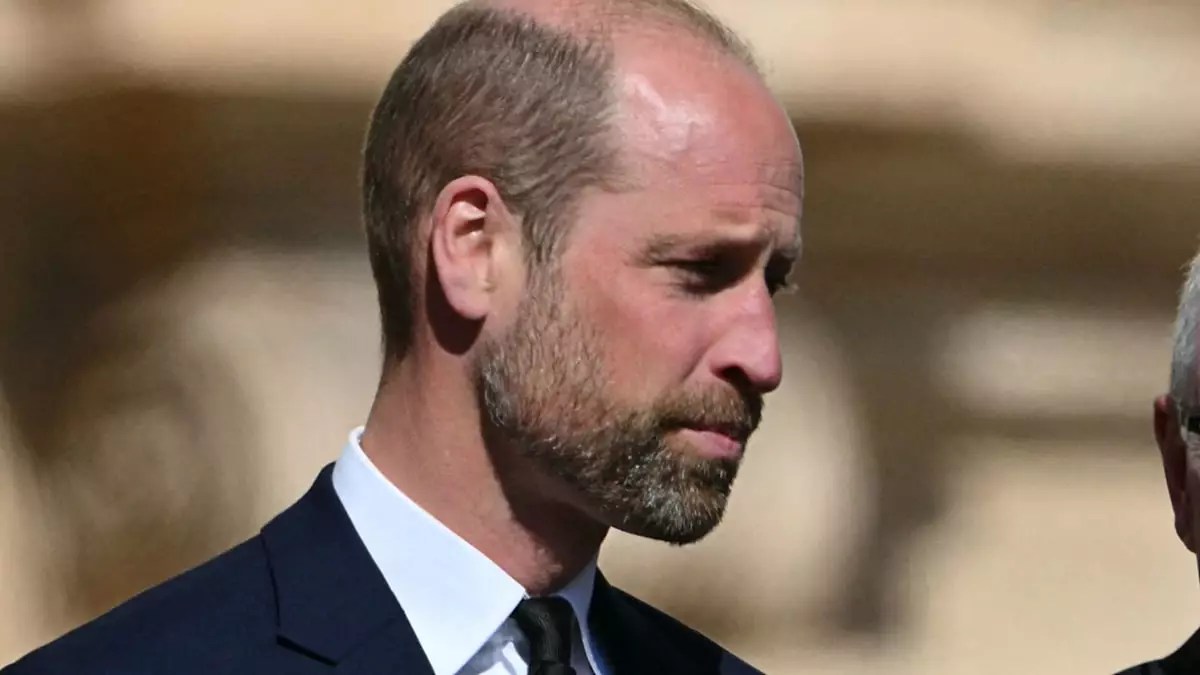The recent funeral of Pope Francis in Vatican City witnessed not only a significant global farewell to the beloved pontiff, but also a quietly profound moment for the British royal family. Prince William, the Prince of Wales, represented his father King Charles at this solemn gathering, and his demeanor has drawn widespread admiration. As the lone British royal amidst a sea of world leaders and dignitaries, his composure and respectfulness offered a glimpse into the kind of monarch he is destined to become.
Prince William’s presence was aptly described as a “perfect king” moment, as he navigated the delicate atmosphere of mourning with grace and respect. As William stood beside UK Prime Minister Sir Keir Starmer, he paid homage to the late Pope with a humble bow of his head—a gesture that spoke volumes more than words could convey. In a world often filled with ostentation and chaos, William’s quiet dignity stood in stark contrast to the sometimes theatrical displays of modern politics.
The Art of Composure in a Chaotic Realm
Body language expert Judi James emphasized the significance of William’s understated behavior during such a high-stakes event. According to James, William’s ability to remain “almost invisible” amidst the high tension of international politics demonstrates his growing prowess as a leader. With a stance that communicated reverence rather than self-importance, he honored the memory of Pope Francis while deftly sidestepping attempts to draw attention to himself.
Unlike leaders who often seize the spotlight in times of global events, William focused solely on one task: paying his respects. In a landscape where public figures frequently compete for visibility, his singular purpose exemplified a quality that could make him an “ideal king.” His elegance lay not in bombast but in a graceful, body language that spoke of deep reflection and respect.
Shared Values with Princess Kate
Interestingly, many observers have noted that William shares this invaluable trait of composure with his wife, Princess Kate. Though she was absent from the funeral, staying home to care for their three children, her influence is undeniably felt in the ideals that both she and William represent. Their ability to maintain poise and dignity at public engagements—making these moments about others rather than themselves—suggests they are well-prepared for the responsibilities that await them as future monarchs.
Princess Kate and Prince William cultivate a brand of royal representation that strives to balance tradition with modern relevance. Their shared ethos of humility aligns seamlessly with the values expected of modern leadership, suggesting a monarchy that is both progressive and deeply rooted in respect for cultural and historical significance. This ability to engage with the public while keeping the focus where it belongs is a refreshing change in a world often dominated by self-promotion.
Public Response: A New Generation of Monarchy
William’s recent appearance has sparked admiration not just within royal circles but also among the general public, particularly in the United States. Voices on social media resonated with a sentiment of enthusiasm for the Prince’s dignified conduct. Comments praising his “state visionary” aura reflected a collective belief that William is well-loved across borders—a fountain of hope in an evolving monarchy that many are eager to support.
The public’s affection for William seems to be anchored in a perception of him as a modern statesman—an emblem of youthful leadership poised to take charge. As he embraces more responsibilities in light of King Charles’ health concerns, his performance at significant events like the Pope’s funeral marks a clear trajectory toward the future of the monarchy. Each gesture, each respectful nod, and each dignified interaction contribute to a narrative that positions him front and center, not just as a prince but as a beacon of stability and hope in tumultuous times.
In a world where the royal family often contends with scrutiny and evolving expectations, William’s ability to represent the UK with elegance may just solidify his standing as an emerging monarch—one who prioritizes respect over spectacle and embodies the future of a monarchy that seeks to resonate with contemporary society.







Leave a Reply